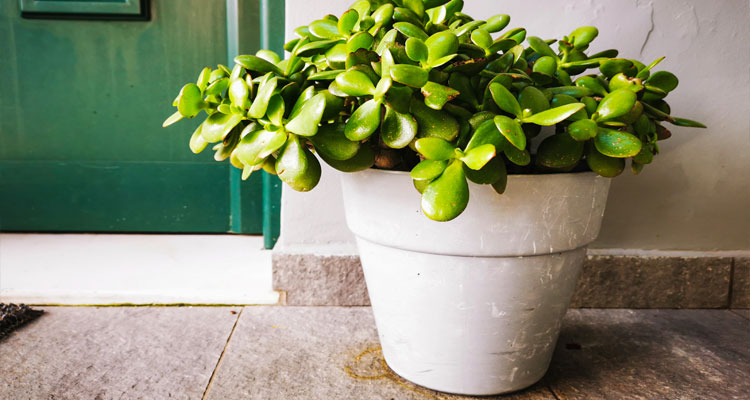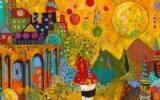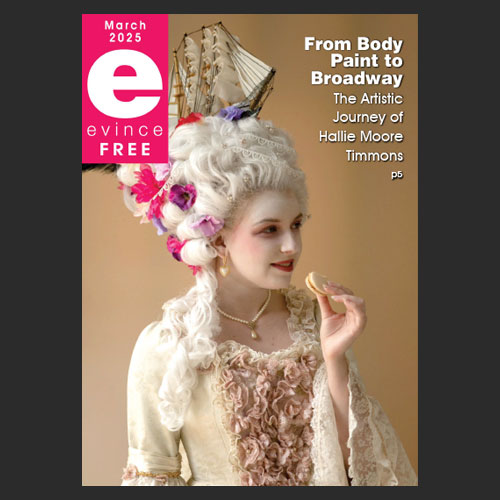(Scene: Plant and Linda are talking in the late morning. Linda is still struggling conceptually with conversing with a sentient plant.)
Plant (cheerily): Good morning. You are up later than usual.
Linda (yawning): I was dead to the world.
P: My cousin plant died and came back as a carnation.
L:… What?
P: Cuz was reincarnated.
L:… Is this a plant joke?
P: That brings on another interesting question. What is it like to be dead?
L:… How would I know? I’m not dead.
P: You said you were dead to the world.
L: “Dead to the world” means sleeping heavily.
P: My question is still hanging heavily.
L: Plant, why are you asking about death?
P: I am curious.
L: Popular saying: “You can’t avoid death or taxes.”
P: I do not pay taxes.
L: Let’s tackle this another way. Death is the opposite of life.
P (snarkily):… Here we go…
L: If you’re dead, your consciousness is gone.
P: What about your body?
L: Your body’s toast.
P: Toast? Like breakfast?
L (irritably): Plant, you’re such a blend of knowing unexpected stuff and not knowing expected stuff.
P: Expected for a plant?
L (huffily):… I stand corrected. As usual. With death, a body stops growing. It’s dying, decomposing. But humans have rituals.
P: Rituals?
L: Let’s go outside.
P: I am going, too? Do not drop me. I might die.
L: I’m not going to drop you. You’re too much of an unknown.
P: Unknown?
L: Example: In microbiology, we culture bacteria to see whether they are the kind that hurt humans. They’re unknown until we can classify them. If we think they can hurt us, we will do more testing.
P: …You think I am here to hurt you?
L (consideringly):… I think you’re here to test me in a way that teaches me…
P:… That means…?
L: Socrates thought all knowledge was present, waiting to be uncovered through questioning. He questioned others relentlessly. So, we keep talking to resurrect knowledge.
P: Good spin, Linda. We are out in the road. You are in your nightie. We should not stay here long enough to get dead by car-strike. I would rather learn by metaphor than the real thing.
L: Good point, Plant. …I’m holding you up. See that plot of land down the hill?
P: The cemetery?
L: Yup.
P: Where dead people are buried.
L: Right. Those stones down there mark the graves of loved ones.
P: Rituals. So living people can visit the deceased.
L: To remain connected…
P:… with memories of the dead.
L: Sometimes people are cremated.
P: They are still remembered.
L: For their contributions during life.
P: What about when plants die?
L: They go back into the earth.
P: The cycle of life.
L: Right.
P: Many people have children. Old people who die live on through their children.
L: Plants live on, too.
P: We do not procreate like you.
L: But some of you produce seeds which are planted. New plants grow.
P: Not many plants converse like this.
L: Sometimes we take a sample and try to root a new “you.”
P: …I could continue in a younger form?
L: Sure.
P: Would I speak? Like this?
L: I don’t know.
P: Living on would be better than dying.
L: Yes.
P: Okay. Do it.
L: If we start another “you,” you won’t be dead to the world if you die. And you’ll never be dead to me.
P: We both learn from these dialogues. Get us out of the road.
L (bringing plant back into the house): I need to buy plant food and drop off my taxes, so we need to stop talking.
P: So, this conversation is dead?
L: If it stops, we’ll still remember the gist. Plus, you’ll have new food for thinking, I mean questioning; I mean grilling me.
P: Looking forward to discovering more.
Plant and Linda Lemery (llemery@gmail.com) wish everyone good luck with their taxes and Happy Easter. Both welcome reader comments.






